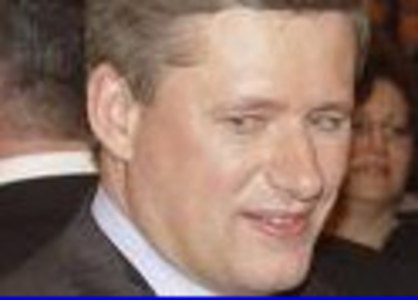- This is an edited version of a column that originally appeared in the Calgary Sun in 2001
***
When an Alliance MP recently rose in the House of Commons to attack the administration of official bilingualism, he did more than just challenge a government policy -- he committed heresy.
After all, enforced national bilingualism in this country isn't mere policy. It has attained the status of a religion. It's a dogma which one is supposed to accept without question.
So it's no wonder the Alliance MP's views triggered outrage among bilingualism's chief apostles; the liberal media, the Liberal Party and the Red Tories.
I have difficulty seeing what's so "extremist" about questioning the costs and failure of current language policy.
My own experience with bilingualism goes back to the summer of 1968. My parents sent me crosstown to a primitive immersion course, probably more to get me out of their hair than to help construct a new federal theology.
In those days, the promise was bilingualism would lead to a new country -- more united, more fair, truly bilingual.
It didn't work.
In fact, Canadians aren't much more bilingual today than they were back then.
According to the 1996 census, the proportion of Canadians who are English-French bilingual is 17%. But, as far back as 1951, that number was well over 12%.
Even this puny growth in official bilingualism (at enormous long-term federal expense) is doubtless exaggerated.
Many anglophones especially have pursued immersion programs and are encouraged to consider themselves bilingual. But with no deep economical, social or cultural reason to master and maintain the French language, the skill simply atrophies.
Why? It's extraordinarily difficult for someone to become bilingual in a country that is not.
And make no mistake. Canada is not a bilingual country. In fact it is less bilingual today than it has ever been. Oops, I committed heresy again.
While the proportion of officially bilingual Canadians has remained relatively static, real bilingualism in Canada is quite geographically isolated.
Most francophones live in French unilingual regions of Canada -- mainly Quebec -- and most anglophones live in English unilingual regions outside the province.
Areas with significant numbers of both linguistic groups are almost all narrowly con-c entrated near the New Brunswick-Quebec and Quebec- Ontario borders, where most genuinely bilingual Canadians also reside.
There's nothing wrong with this. A unilingual anglophone or unilingual francophone is as much a "real Canadian" as a bilingual one.
The difficulty only comes when the federal Liberals insist Canada become the bilingual country it is not. But the ugly truth is even the Liberals are losing faith in their own creed. They are not practising what they preach.
While there have been attempts to promote French outside of Quebec, the federal government has increasingly surrendered to Quebec's activist policies of official unilingualism.
The discrimination against English and English institutions by Quebec language laws is well documented.
The Liberals, of course, believe emphasizing Canada's "Frenchness" will encourage more loyalty to Canada among Quebecois. But as Quebec becomes more French and the rest of Canada becomes more English, it really means the Quebecois identify more with Quebec than with Canada.
So there you have it. As a religion, bilingualism is the god that failed. It has led to no fairness, produced no unity, and cost Canadian taxpayers untold millions.
I guess that's what happens when you mix church and state.
- This is an edited version of a column that originally appeared in the Calgary Sun in 2001






















Laissez un commentaire Votre adresse courriel ne sera pas publiée.
Veuillez vous connecter afin de laisser un commentaire.
Aucun commentaire trouvé